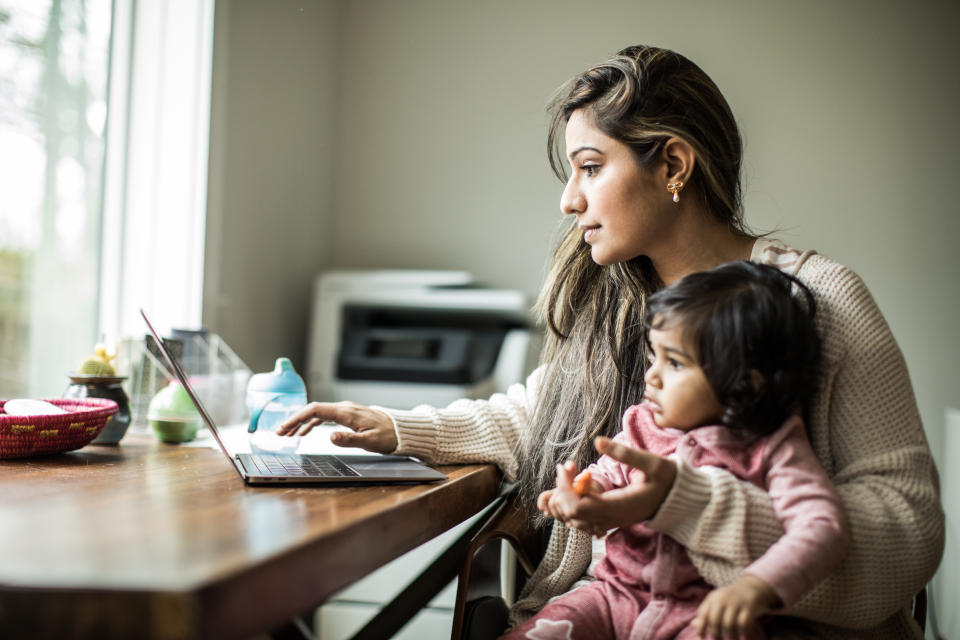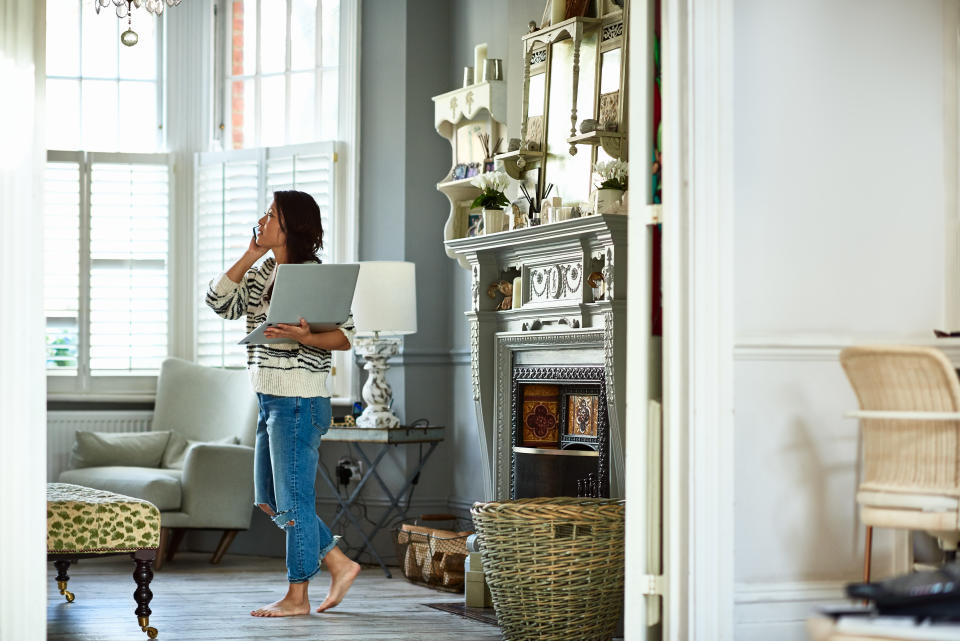Lessons in productivity from working at home with kids

In early April a tweet circulated suggesting that if you don’t come out of quarantine with either a new skill, a start on something you’ve been putting off (like a new business) or more knowledge, then you “didn’t ever lack the time, you lacked the discipline.”
Also read: The perfect productivity hack: How to spend the last 5 minutes of your work day
Also read: What happened when this woman gave her staff unlimited annual leave
Also read: Quitting this workplace habit will make you finish tasks 40% faster
The tweet provoked a huge reaction and thousands of responses. It clearly made a lot of assumptions about people’s time, priorities, and mental state in coping with a pandemic and the sudden life adjustments required.
But three months later, I dare suggest we all learnt new ‘skills’ during this period, although they may not be the ones we had put on our New Year’s Resolution lists at the start of 2020, or even what the business coach tweeting his unsolicited advice may have had planned.
Perhaps it was learning to entertain yourself from home, learning how to negotiate and deal with others – housemates, family members etc – 24/7, maybe it was learning to use Zoom, or simply how to slow down.
Every day is and continues to be a learning experience during the pandemic.
But speaking with numerous parents about how they coped during lockdown, including many who were attempting to work full time while managing kids of varying ages at home, there were a number of valuable lessons shared on productivity that may well change how we balance work and family life well into the future.
Below’s just some of them.

Forget perfect. Perfection is the enemy of getting stuff done and has placed unrealistic expectations on all of us in the past, but particularly on already time-poor working parents.
The lockdown period and continued social distancing restrictions have provided opportunities to see other ways of getting things done, to accept limitations and mistakes, and to acknowledge that content is more important than appearances.
Meet virtually. Many of the virtual meetings that occurred during lockdown would have otherwise taken place in person – requiring travel and other time-based costs in order to make them happen. Some face to face contact will always be important, particularly for checking in on your own team, and some people crave having those in-person opportunities.
But we’ve seen the hours of time that can be saved every week, we’ve learnt to use the technology to our benefit and to accept its limitations. These lessons should offer more people real choices around how meetings are taken in the future.
But set meeting limits. Not everything needs a meeting, much can be solved with a quick phone call or a simple email. Those meetings that do occur, need limits. Establish parameters from the outset regarding how much time is available, and use a brief agenda to keep things moving.
Use regularly scheduled ‘check in’ style team meetings to establish deadlines for projects – which can be particularly helpful if you’re working flexibly, and can’t be readily available all day.
Future business travel? Question it. For those travelling frequently for work, this period has demonstrated just how much can be done without it. Especially as meetings – including large company board meetings – have quickly been adapted to take place virtually.
Once restrictions fully ease, we should continue to question the necessity of much of this business travel. It’s an opportunity to save time, emissions, money and more.
Make a reason to be productive in the little time available. Deadlines are key for productivity, to avoid the old Parkinson’s Law adage that “work expands so as to fill the time available for its completion”.
And kids are brilliant little deadline creators – they might be settled for 15 minutes now, but they’re going to want your attention soon enough, so if you’ve got a decision to make, a few emails to fire off or a phone call you’ve been putting off, you’re going to want to get it done immediately.
Do everything possible to reduce decision-making. There’s good evidence to suggest the quality of the decisions we make deteriorate after long periods of having to make decisions.
In a work context, there are strategies to help: for one, you can tackle the big tasks requiring the most significant and difficult decisions first thing in the morning (or whenever you personally feel at your best).
But making decisions about kids happens all day, especially when you’re stuck at home all day – and they unfortunately don’t always fit to your schedule. One trick is to try and cut down the basic decisions you can control. For example, by knowing what you’ll eat and when, and creating repeated daily routines where possible.
Routines, routines … and rewards. I don’t have those kids who easily stick to routines – they don’t go to their room for ‘quiet time’ or even sit still during ‘screen time’, but I kept creating routines regardless.
And I sweetened the deal by offering an end-of-day reward if they could stick to the routine. For a household that usually likes to ‘wing it’, routines of this level and detail were a new skill and a necessity for getting stuff done, and something we’ll take forward as we manage work with school and an increasing number of out-of-school activities as restrictions ease.
We learnt that everyone has a role in making these routines work, and that the sense of accomplishment at the end of the day is worth working for.
Join the Women’s Money Movement on LinkedIn and follow Yahoo Finance Australia on Facebook, Twitter and Instagram.

 Yahoo Finance
Yahoo Finance 